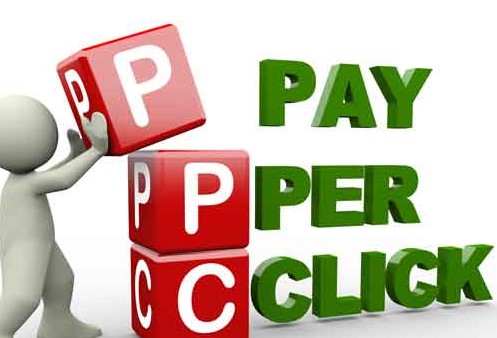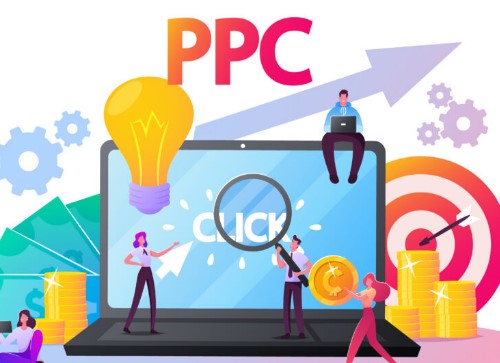In the dynamic landscape of digital marketing, PPC advertising remains a powerful tool for businesses aiming to swiftly connect with their target audience. Pay-per-click campaigns offer unparalleled advantages in terms of precision targeting, immediate visibility, and measurable ROI. To harness the full potential of PPC and achieve optimal results, businesses must deploy strategic approaches that align with their goals and resonate with their audience. This comprehensive guide outlines effective PPC advertising strategies that can propel your business towards rapid audience engagement and conversion.
Understanding the Fundamentals of PPC Advertising
PPC advertising involves paying a fee each time your ad is clicked, making it a cost-effective model when managed strategically. The most popular platform for PPC campaigns is Google Ads, which displays ads in Google’s search results and across its vast network of partner sites. Key components of a successful PPC campaign include:
Keyword Research and Selection
Keyword research forms the foundation of a successful PPC strategy. By identifying relevant keywords that align with your business objectives and target audience’s search queries, you can ensure your ads appear to users actively seeking your products or services. Tools like Google Keyword Planner, SEMrush, and Ahrefs facilitate comprehensive keyword analysis to uncover high-value opportunities.
Compelling Ad Copy and Design
Crafting compelling ad copy is crucial to capturing user attention and encouraging clicks. Ads should be concise, persuasive, and tailored to resonate with your target audience’s needs and preferences. Incorporate compelling CTAs (calls-to-action) that prompt immediate action, such as “Shop Now,” “Learn More,” or “Sign Up Today.”
Landing Page Optimization
A seamless user experience is pivotal to maximizing PPC conversions. Landing pages should be optimized for relevance, loading speed, and mobile responsiveness. Ensure alignment between your ad content and landing page messaging to maintain continuity and enhance user engagement. Implement A/B testing to refine landing page elements and improve conversion rates over time.
Advanced Strategies to Enhance PPC Performance
To achieve sustained growth and competitive advantage through PPC advertising, consider implementing advanced strategies tailored to your specific business objectives:
Geographic Targeting and Ad Scheduling
Geographic targeting allows businesses to display ads to users in specific locations, making it ideal for regional marketing campaigns. Utilize demographic data and user insights to refine your targeting parameters and maximize ad relevance. Additionally, ad scheduling enables strategic ad placement during peak engagement hours, optimizing campaign efficiency and budget allocation.
Remarketing Campaigns for Enhanced Engagement
Remarketing campaigns target users who have previously interacted with your website or shown interest in your products. By delivering personalized ads to these prospects as they browse other sites or social media platforms, you can nurture leads through the sales funnel and increase conversion rates. Segment audiences based on their behavior and engagement level to tailor remarketing strategies effectively.
Performance Monitoring and Optimization
Continuous monitoring and optimization are essential for maximizing PPC campaign performance. Analyze key metrics such as click-through rate (CTR), conversion rate, and cost-per-click (CPC) to identify trends and opportunities for improvement. Adjust bidding strategies, ad placements, and targeting parameters based on data-driven insights to achieve optimal ROI and campaign success.
Leveraging Analytics for Data-Driven Insights
Harness the power of analytics tools to gain actionable insights into campaign performance and audience behavior. Platforms like Google Analytics provide comprehensive data on user interactions, conversion paths, and attribution models. Use this information to refine your PPC strategy, allocate budgets effectively, and drive continuous improvement across your digital marketing initiatives.
Best Practices for Effective Budget Management
Effective budget management is crucial for maximizing the impact of your PPC campaigns while maintaining cost-efficiency. Implement the following best practices to optimize your budget allocation:
Setting Realistic Budgets and Goals
Define clear budgetary goals aligned with your business objectives and expected ROI. Establish realistic spending limits based on industry benchmarks, competitive landscape, and campaign priorities. Regularly review and adjust budgets to capitalize on high-performing campaigns and reallocate resources from underperforming ones.
Implementing Bid Strategies
Strategic bid management is essential for achieving optimal ad placement and maximizing budget efficiency. Leverage automated bidding strategies offered by platforms like Google Ads to streamline bid adjustments based on performance metrics and conversion goals. Test different bidding strategies, such as cost-per-click (CPC), cost-per-acquisition (CPA), or enhanced cost-per-click (ECPC), to identify the most effective approach for your campaigns.
Monitoring and Adjusting Campaign Performance
Continuous performance monitoring enables proactive adjustments to campaign settings, ad creatives, and targeting parameters. Use performance metrics and KPIs (Key Performance Indicators) to track campaign effectiveness in real-time. Identify trends, opportunities, and potential challenges early to implement timely optimizations and maximize ROI.
Integrating PPC with Overall Marketing Strategy
To maximize the impact of PPC advertising, integrate it seamlessly with your overall marketing strategy and channels:
Cross-Channel Synergy
Align PPC campaigns with other digital marketing channels, such as SEO, social media marketing, and email marketing, to reinforce messaging and amplify reach. Coordinate campaign schedules, messaging consistency, and audience targeting across channels to enhance brand visibility and engagement.
Content Alignment and Messaging Consistency
Ensure consistency in brand messaging and value proposition across PPC ads, landing pages, and other marketing assets. Tailor ad content to resonate with specific audience segments and buyer personas, addressing their pain points and highlighting unique selling points (USPs). Maintain a cohesive narrative that guides prospects through the conversion funnel and fosters brand trust and loyalty.
Leveraging Retargeting for Enhanced Conversions
Integrate retargeting strategies within your PPC campaigns to re-engage users who have shown interest but haven’t converted. Segment audiences based on their interaction history and stage in the buying journey to deliver personalized ads that address their specific needs and objections. Implement dynamic remarketing ads that showcase relevant products or services based on users’ browsing behavior to encourage repeat visits and conversions.
In conclusion, PPC advertising represents a cornerstone of effective digital marketing strategies, offering businesses unparalleled opportunities for rapid audience reach and engagement. By leveraging targeted ads, compelling content, and data-driven insights, businesses can optimize their PPC campaigns to achieve measurable results and sustainable growth. Embrace these advanced PPC strategies to outperform competitors, drive conversions, and establish a strong online presence in today’s competitive landscape.


